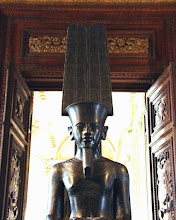Culture in the Cosmos
As SETI's scientists plan for their first contact with other worlds, who better to consult with than anthropologists, who specialize in encounters with exotic cultures? And thus, over the past several years the SETI Institute has repeatedly brought together anthropologists and scholars from other disciplines, in an attempt to bridge the gap between humans and extraterrestrials.
The task of these savants, who met most recently in San Jose, California, is twofold: to try to uncover any universals of culture, and then apply these insights to constructing messages that might be intelligible to independently evolved civilizations. "Although it is impossible to predict the nature of extraterrestrial intelligence," admitted NASA's Chief Historian, Steven Dick, "the one certainty is that, if it exists, it will have undergone cultural evolution."
For SETI researchers, the dizzying variety of societies that might evolve on other worlds becomes manageable for one simple reason: if extraterrestrials can build a radio transmitter or high powered laser beacon, we and they already have something vital in common. Indeed, there may be dolphin-like forms of intelligence in the oceans of other planets, but unless they can erect transmitters to send signals across interstellar space, we may never know of their existence. And to build the technology that makes such contact possible, it has often been argued, extraterrestrials would certainly need to know some of the same mathematics that we do. Extraterrestrials might not understand English or Chinese or Swahili, but they'd certainly be familiar with algebra and geometry.
Or would they?
Several participants of the San Jose meeting advised care in assuming that human ways of understanding the universe will necessarily be mirrored on other planets. "Reliance on mathematics as a major means of communication with extraterrestrial intelligence may be misplaced," cautioned historian Shirley Woolf. In contrast to the view that mathematics is a direct reflection of the structure of the universe, which would necessarily be known by scientists on other worlds, Woolf emphasized a view espoused by some prominent cognitive scientists, that "mathematics is an artifact derived from the specific structure of human embodiment."
What to Count On
The simplest example might be the link between the way humans count and the number of digits we use for counting: it may not be a coincidence that humans have ten fingers and that we're also are very comfortable using a base 10 number system, where there are ten different digits that can be added, subtracted, and otherwise manipulated. For extraterrestrials with arms or tentacles ending in a different number of digits, other number systems may seem equally natural.
If only the numbering system varied from civilization to civilization, mathematics might still serve as a cosmic Rosetta Stone. After all, we humans are quite capable of converting the numbers of everyday life into binary formats or an endless array of variations, and base 10 number systems are by no means universal even on Earth.
But what if the differences run even deeper, and our mathematics reflects not just the vicissitudes of the hands we use to grasp objects, but more fundamental features about our way of relating to the world, such as the senses that allow us to gather information about our environments?
As creatures who rely heavily on our senses of vision and hearing, we are able to locate objects precisely in three-dimensional space. Moreover, our senses let us clearly demarcate objects in time: events happen in the present, the past, or the future. Either something is already taking place (the present), it's already over and done with (the past), or it has not yet happened (the future).
But what if we relied on sensing the world primarily through our sense of smell, with objects leaving traces of their presence in lingering scents even long after they are gone? Might our sense of past, present, and future blur somewhat, with one moment gently merging into another?
What if we no longer sensed the presence of an object in stark categories of "here" or "not here," but in terms of "probably here" or "probably gone"? Might our mathematics reflect our everyday encounters with the world, so we no longer bluntly stated "1 + 1 = 2," but felt a more intuitively reasonable mathematics might be founded on the observation that "roughly 1 + roughly 1 = roughly 2"? Might the notions of precision and fuzziness vary from civilization to civilization, making it a bit harder to understand creatures who experience the world differently than we do?
Understanding Ourselves
"The Search for Extraterrestrial Intelligence is, on one hand, a straightforward experimental endeavor -- astronomers searching our galaxy for signals of artificial origin," said anthropologist Kathryn Denning. "However, in creating the possibility of contact with alien beings, SETI has also created a space for abundant speculation about the nature of societies on other worlds."
And indeed, the hope of SETI is that some day we will have incontestable evidence that extraterrestrial civilizations exist. But in the meantime, let's remember the impact that the search can have on our world, right now, whether or not we ever detect a signal from another star. "A real encounter between human beings and alien intelligence would have substantial global impact," Denning reminds us. "However, even considering such possibilities in strictly hypothetical terms may affect the way we see ourselves and our future on Earth."
Source






